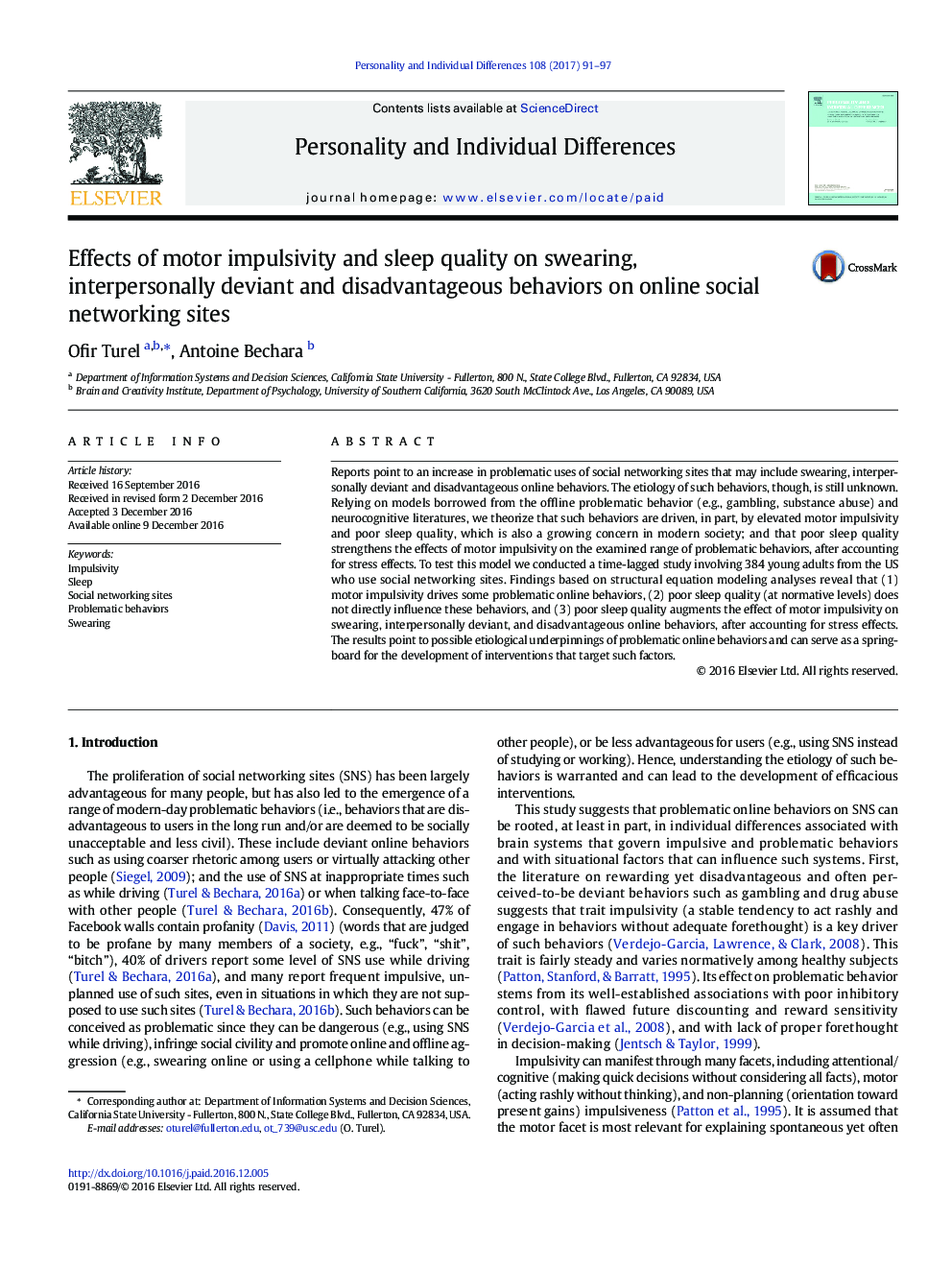| کد مقاله | کد نشریه | سال انتشار | مقاله انگلیسی | نسخه تمام متن |
|---|---|---|---|---|
| 5036096 | 1472010 | 2017 | 7 صفحه PDF | دانلود رایگان |
- Three problematic behaviors on social networking sites were identified.
- These include swearing, interpersonally deviant and disadvantageous behaviors.
- While motor impulsivity predicts these behaviors, poor sleep quality does not.
- Poor sleep quality enhances motor impulsivity effects on these online behaviors.
- Motor impulsivity effects are significant only when sleep quality is low.
Reports point to an increase in problematic uses of social networking sites that may include swearing, interpersonally deviant and disadvantageous online behaviors. The etiology of such behaviors, though, is still unknown. Relying on models borrowed from the offline problematic behavior (e.g., gambling, substance abuse) and neurocognitive literatures, we theorize that such behaviors are driven, in part, by elevated motor impulsivity and poor sleep quality, which is also a growing concern in modern society; and that poor sleep quality strengthens the effects of motor impulsivity on the examined range of problematic behaviors, after accounting for stress effects. To test this model we conducted a time-lagged study involving 384 young adults from the US who use social networking sites. Findings based on structural equation modeling analyses reveal that (1) motor impulsivity drives some problematic online behaviors, (2) poor sleep quality (at normative levels) does not directly influence these behaviors, and (3) poor sleep quality augments the effect of motor impulsivity on swearing, interpersonally deviant, and disadvantageous online behaviors, after accounting for stress effects. The results point to possible etiological underpinnings of problematic online behaviors and can serve as a springboard for the development of interventions that target such factors.
Journal: Personality and Individual Differences - Volume 108, 1 April 2017, Pages 91-97
